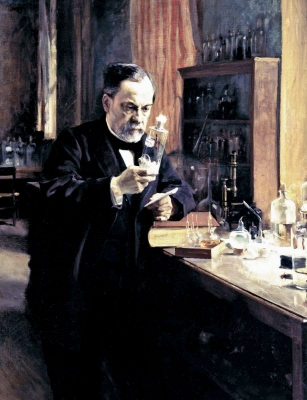
Louis Pasteur was a French chemist and microbiologist, known for his pioneering work in pasteurisation and microbial fermentation. He also discovered that microorganisms cause diseases.
Pasteur was born in 1822, in Dole, France. He was an average student in his early years, but was gifted in drawing and painting. He earned his bachelor of arts degree and bachelor of science degree at the Royal College of Besancon in France.
In 1854 Pasteur was appointed the dean of the science faculty at the University of Lille, where he began a series of studies on alcoholic fermentation. In 1857 Pasteur showed the role played by microorganisms in fermentation process. His work provided support to the germ theory of disease. These researches helped him come up with a simple process called pasteurisation, which involves heating liquid (such as milk) at a controlled temperature for a fixed period of time in order to kill bacteria and moulds present in it, without major chemical alteration. Pasteurisation makes the liquid safe for consumption.
Pasteur’s later work on diseases such as chicken cholera contributed to the foundation of immunology. He also developed the first vaccines for anthrax and rabies. His scientific accomplishments earned him France’s highest recognition, the Legion of Honour.
Picture Credit : Google




